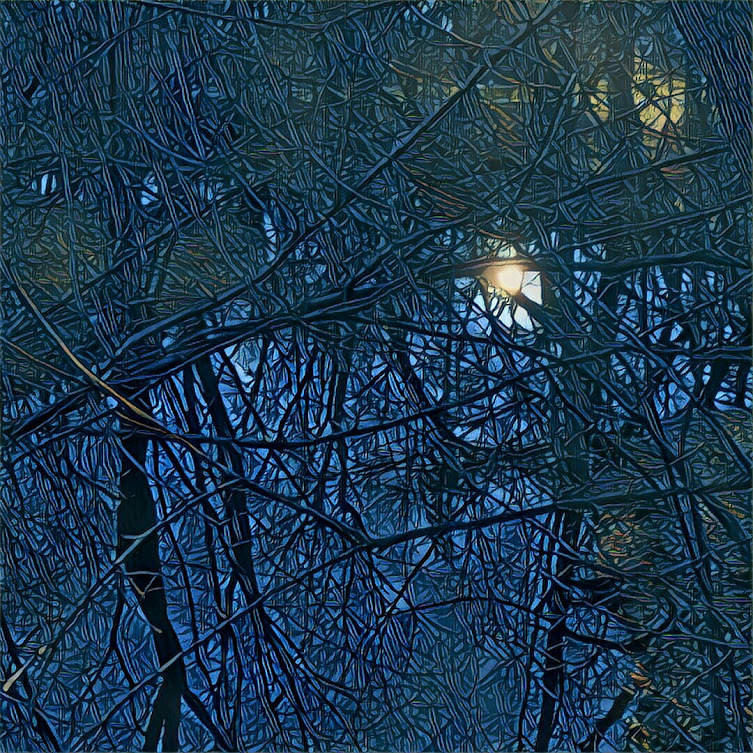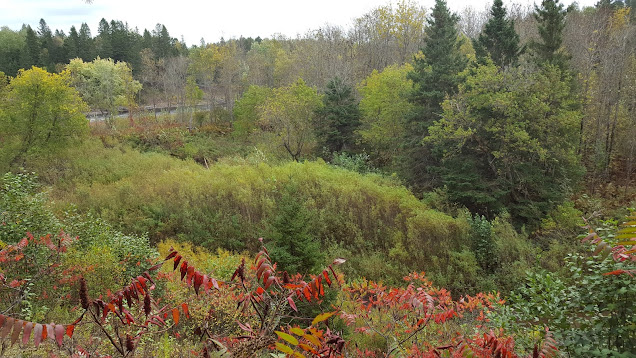A glow-in-the-dark star that fell from the heavens of my writing room to floor, with none to witness its imagined fiery glory, was the second messenger.
I glance at the ceiling with its slowly eroding constellations, carefully placed by me years ago (Big Dipper, Little Dipper, Scorpius, Orion, Cassiopeia), and I wonder.
Regard the star-like blue of the twinkle lights around the windows. Magical periwinkle walls that enfold me in a dreaming blue bower. Dried oak leaves everywhere. Braids of sweetgrass, images of birds, autumn forests, spirals, stars and more stars...
I remember: The great-great grandmother in the tale read long ago, when I was small.
The grandmother was an enchantress, it seemed to me; a being of great feminine power, a healing power, gentle yet terrible. She was tall, with long white hair, like moonlight. (That's how I remember her.)
I remembered most of all her magical light, like the moon. It dwelled in her tower room and shone silverbright or soft-as-snow, following upon her merest thought.
It was a companion to her, in her solitary tower, I thought. A friend.
How did the idea of that light entrance me so, that I still recall the power of that image painted in words?
That it spoke to my child's mind as powerfully and strangely as a rare dream tells me it filtered deeply into my unconscious, as a mythic symbol. The grandmother. The moon. The enchantress. The tower. The child. The night.
I have not read this story for many decades. (Far too long.)
But how all suddenly makes sense, when we recognize our path, as we trace silver threads of memory and arrive somewhere...we may discover how we treasure and hold wonder close and deep for a lifetime, even when we didn't remember that we were doing so.
How the thought, the language, the imagery, the power of this tale was one of a thousand-million powers that shaped a girl who fell in love with the moon and the stars and tales of magic...so that many years later she writes her own sorts of tales in an upstairs room cascading with echoes of stars, windows wide to the light of the moon she cannot lure inside.
The beautiful illustrations above are by Madalina Andronic, created for The Folio Society 2013 edition of The Princess and the Goblin by George MacDonald, a book first published in 1872.
An edition with the original pen-and-ink illustrations by Jessie Wilcox Smith.
A free audiobook download from LibriVox, as this book is in the public domain in the U.S.


























































